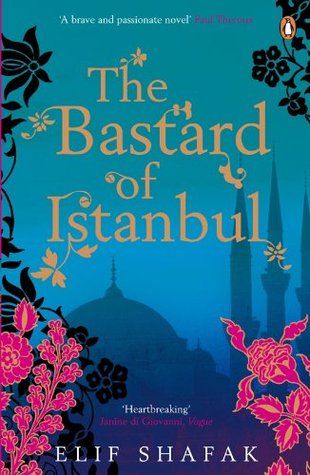More on this book
Community
Kindle Notes & Highlights
Rain, for us, isn’t necessarily about getting wet. It’s not about getting dirty even. If anything, it’s about getting angry. It’s mud and chaos and rage, as if we didn’t have enough of each already. And struggle. It’s always about struggle.
limping her way like a note out of tune.
She was the youngest of four girls who could not agree on anything but retained an identical conviction of always being right, and feeling each had nothing to learn from the others but lots to teach.
There was something in the color white that resembled silence. Both were emptied of life.
“Are you sure this is what you want? Perhaps you would like to mull it over,” said the doctor in a velvety voice as if Zeliha was a pile of dust and he was afraid of brushing her away with the wind of his words if he spoke louder.
Though the traffic was still a mess and the streets full of sludge, the crisp smell of the after-rain gave the whole city a sacred air.
Twenty years in her career as a Turkish national history teacher, she was so accustomed to drawing an impermeable boundary between the past and the present, distinguishing the Ottoman Empire from the modern Turkish Republic, that she had actually heard the whole story as grim news from a distant country. The new state in Turkey had been established in 1923 and that was as far as the genesis of this regime could extend. Whatever might or might not have happened preceding this commencement date was the issue of another era—and another people.
She, as an Armenian, embodied the spirits of her people generations and generations earlier, whereas the average Turk had no such notion of continuity with his or her ancestors. The Armenians and the Turks lived in different time frames. For the Armenians, time was a cycle in which the past incarnated in the present and the present birthed the future. For the Turks, time was a multihyphenated line, where the past ended at some definite point and the present started anew from scratch, and there was nothing but rupture in between.
As she tried to be resilient, the air started to reek of dust and mold, as if the room had fallen into a state of putrefaction. Either the present moment was quickly decaying into a residue of time or the decay of the past was seeping into the present.
Help me out of this dilemma. Either grant me the bliss of the ignorant or give me the strength to bear the knowledge.
Writing a children’s book in Armenian was something never done before, almost inconceivable. Why was there not a single piece of literature in this field? Was it because the Armenian minority had become a society unable to consider its children as children? Was childhood a futility, if not a luxury, denied to a minority in need of growing up as quickly as it could?
Am I responsible for my father’s crime? A Girl Named Turk asked. You are responsible for recognizing your father’s crime, Anti-Khavurma replied.
These words seemed to come effortlessly, as if time was not a sequence of ruptures but an uninterrupted continuity, easily bend-able even when fractured. Mustafa would visit as if it had not been almost twenty years since he had been home.
Armanoush tried not to pay any attention to the stark disparity between the imam’s diminutive body and the stoutness of the women surrounding him. She tried equally hard not to eye the void where the man’s fingers were supposed to be. On each hand the imam had only one and a half fingers. It was impossible not to wonder what had happened. Was he born like that, or had they been chopped off? Whatever the story, the incompleteness of his body was one reason why all these women were so at ease next to him. In his imperfection resided the key to his perfection, in his lack of wholeness the secret
...more
The divan was still; the women were in constant motion. The divan was white; the women wore mostly black. The divan was soundless; the women were all voice—as if doing the exact opposite of the dead was a requisite of living.
In the beginning there was the word, says Islam, preceding any and every existence. Be that as it may, with her father it was just the opposite. In the beginning was the absence of the word, preceding existence.


